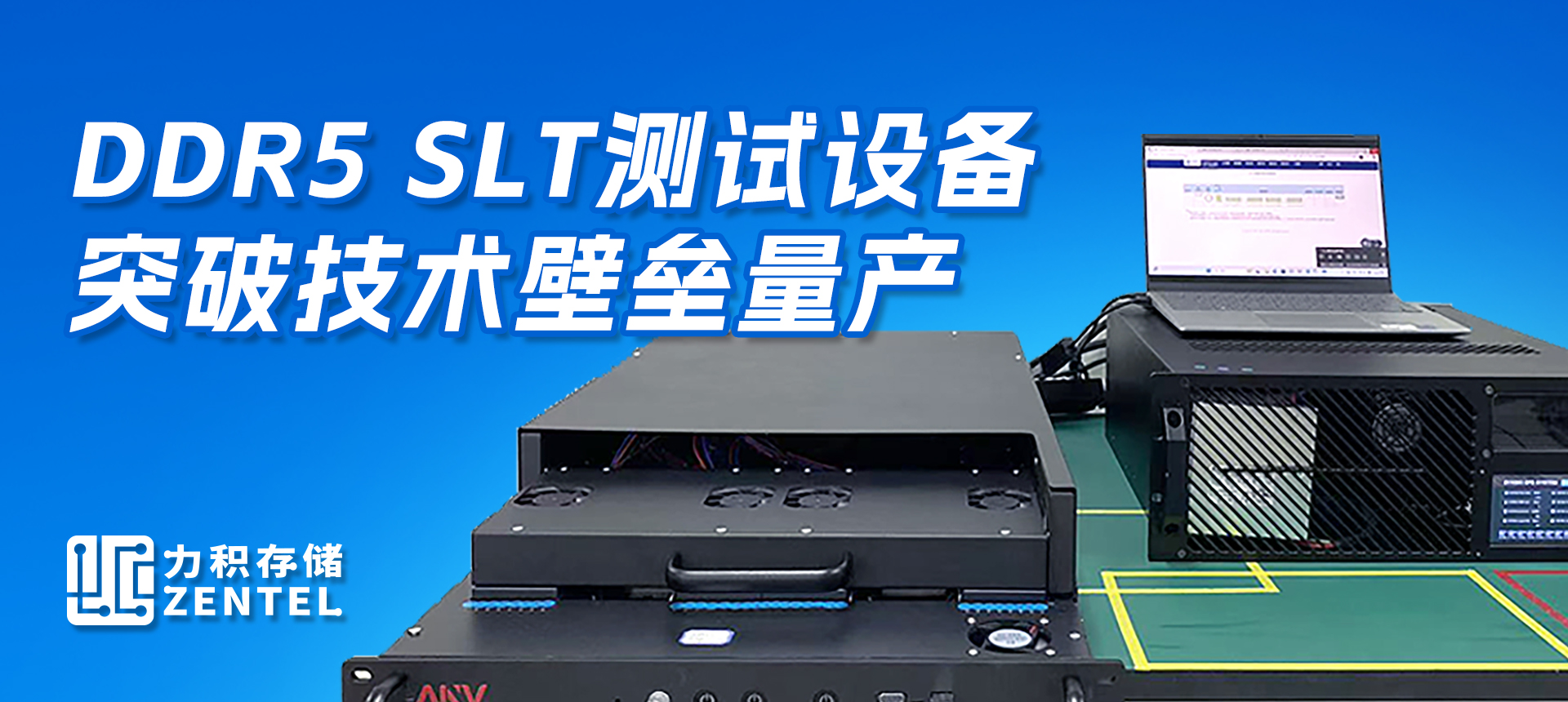
Zentel has successfully independently developed DDR5 SLT (System Level Test) equipment, achieving full autonomy in testing capabilities for high-end server DDR5 DRAM modules. The implementation of this equipment not only fills a domestic technological gap but also, through technological innovation, achieves comprehensive upgrades in testing efficiency, cost control, and intelligent management, injecting core momentum into the quality improvement of high-end server DRAM modules.
3 Breakthrough Core Technologies:
High-Precision Temperature Control and Signal Stability:
The equipment is equipped with dynamic thermal field compensation technology, achieving temperature control accuracy of ±5°C (covering full-scenario range from 40°C to 85°C). It solves the issue of uneven thermal fields caused by differences in memory power consumption, ensuring signal transmission stability in high-frequency test environments.
Multi-Dimensional Algorithm Reconstruction for Test Efficiency:
The self-developed algorithm library fully covers all parameters under JEDEC standards (such as tRCD, tRP, and other timing verifications). The innovative BIOS algorithm design, similar to ATE, improves test efficiency by 10 times compared to traditional solutions.
High production Line Compatibility and Ease of Operation:
The interface design aligns with the habits of production line engineers, supporting assisted insertion and removal and one-click test initiation. It is compatible with standard server slots and packaging types such as RDIMM and LRDIMM, and can be directly integrated into existing production lines for “zero modification” rapid deployment.
The supporting cloud test platform enables full-process test data upload to the cloud. Through real-time monitoring dashboards, AI anomaly recognition (such as high-frequency DQ signal jitter diagnosis), and automated optimization suggestions, it promotes continuous iteration of the test process while simultaneously meeting the remote operation and maintenance needs of “lights-out factories.”
After deployment, manual intervention is reduced by 60%, daily module test capacity is increased by 3 times, and batch testing capability at the thousand-unit level supports large-scale production.
Currently, Zentel has submitted 5 patents related to this equipment, covering core technologies such as high-density probe anti-oxidation structures, machine learning-based abnormal signal classification algorithms, and dynamic thermal field compensation temperature control. The potential patent pool exceeds 10 items, forming comprehensive technical protection for the entire DDR5 module testing process. This layout not only provides competitive support for the current AI server memory market but also solidifies the foundation for global technological iteration.
The breakthrough in DDR5 SLT test equipment marks a critical leap for Zentel toward “autonomous core testing technology,” providing an important pivot for the memory industry to break through in the AI server memory track.